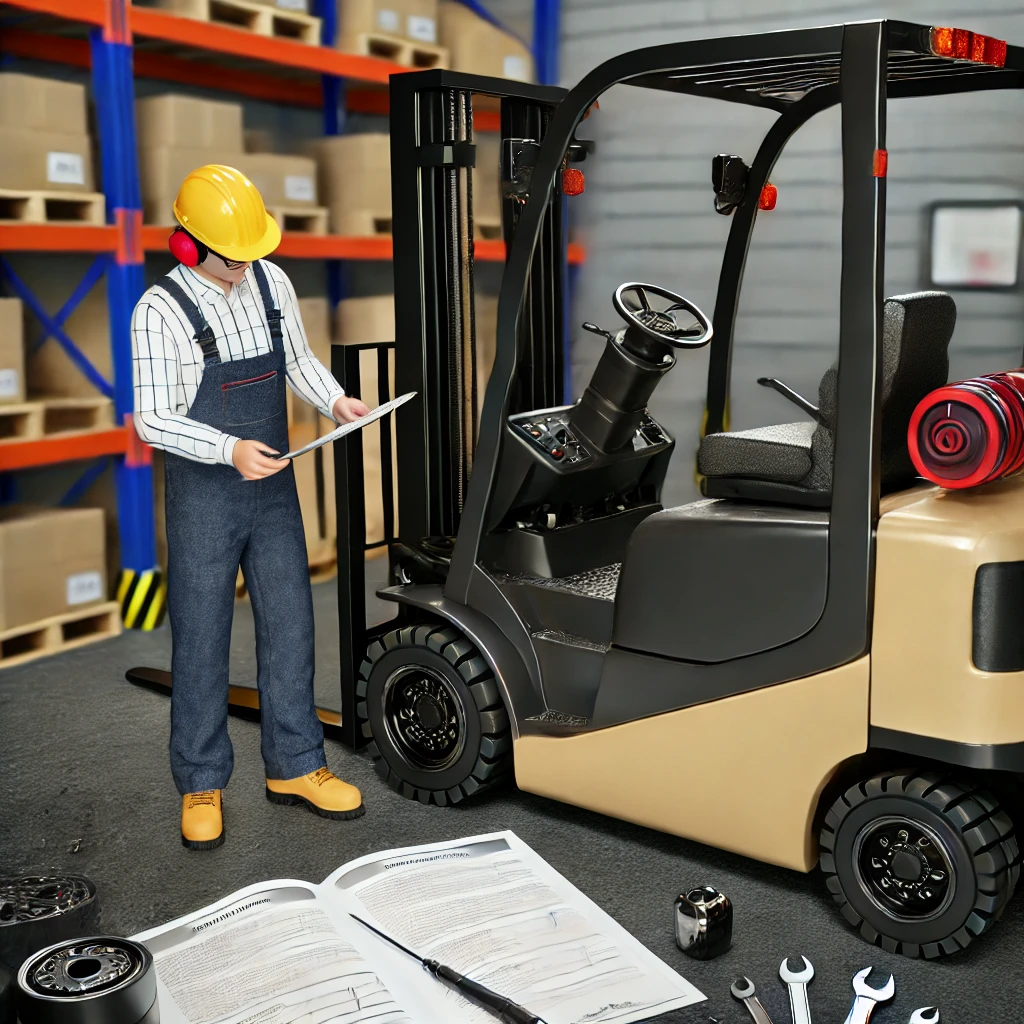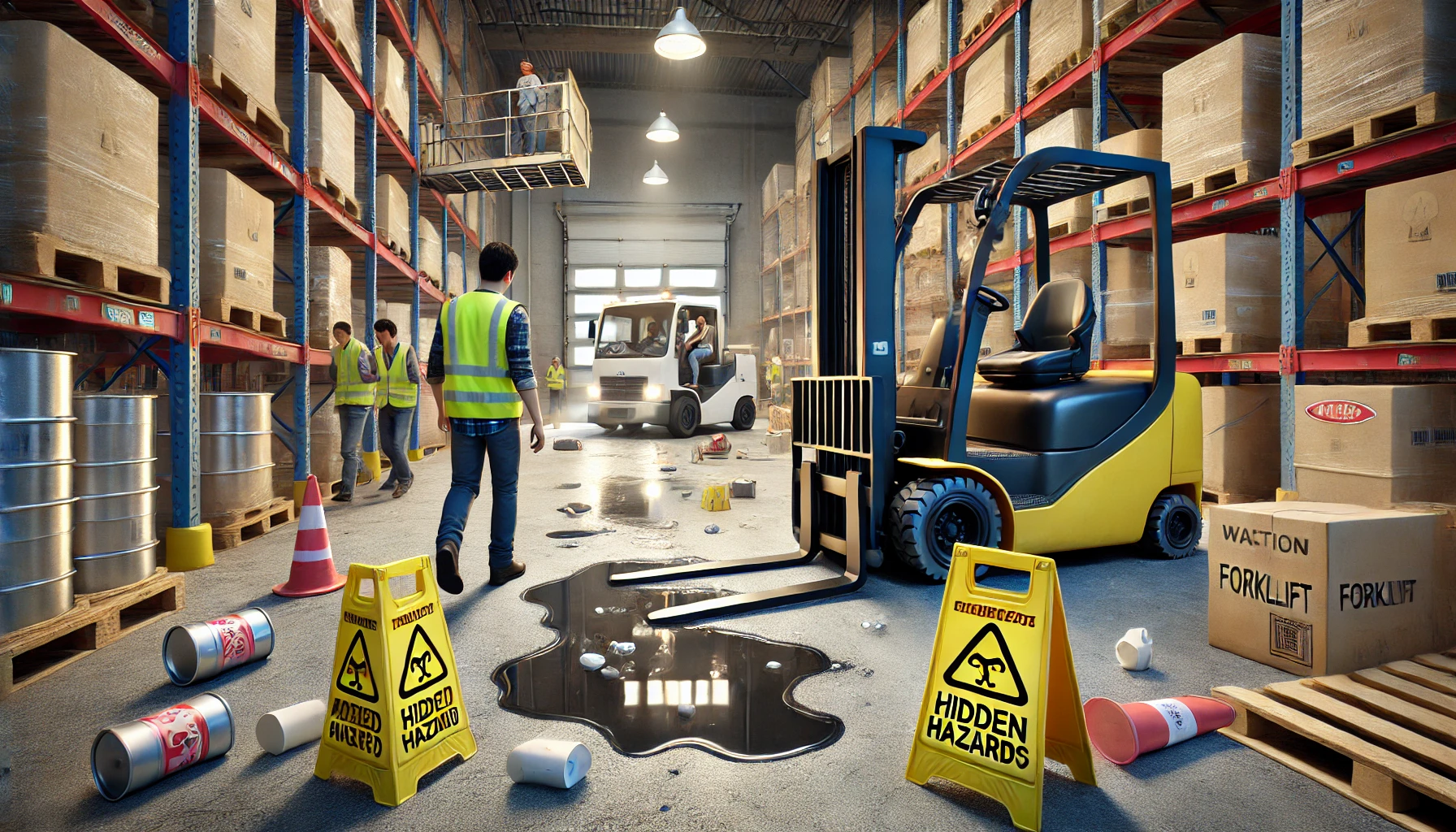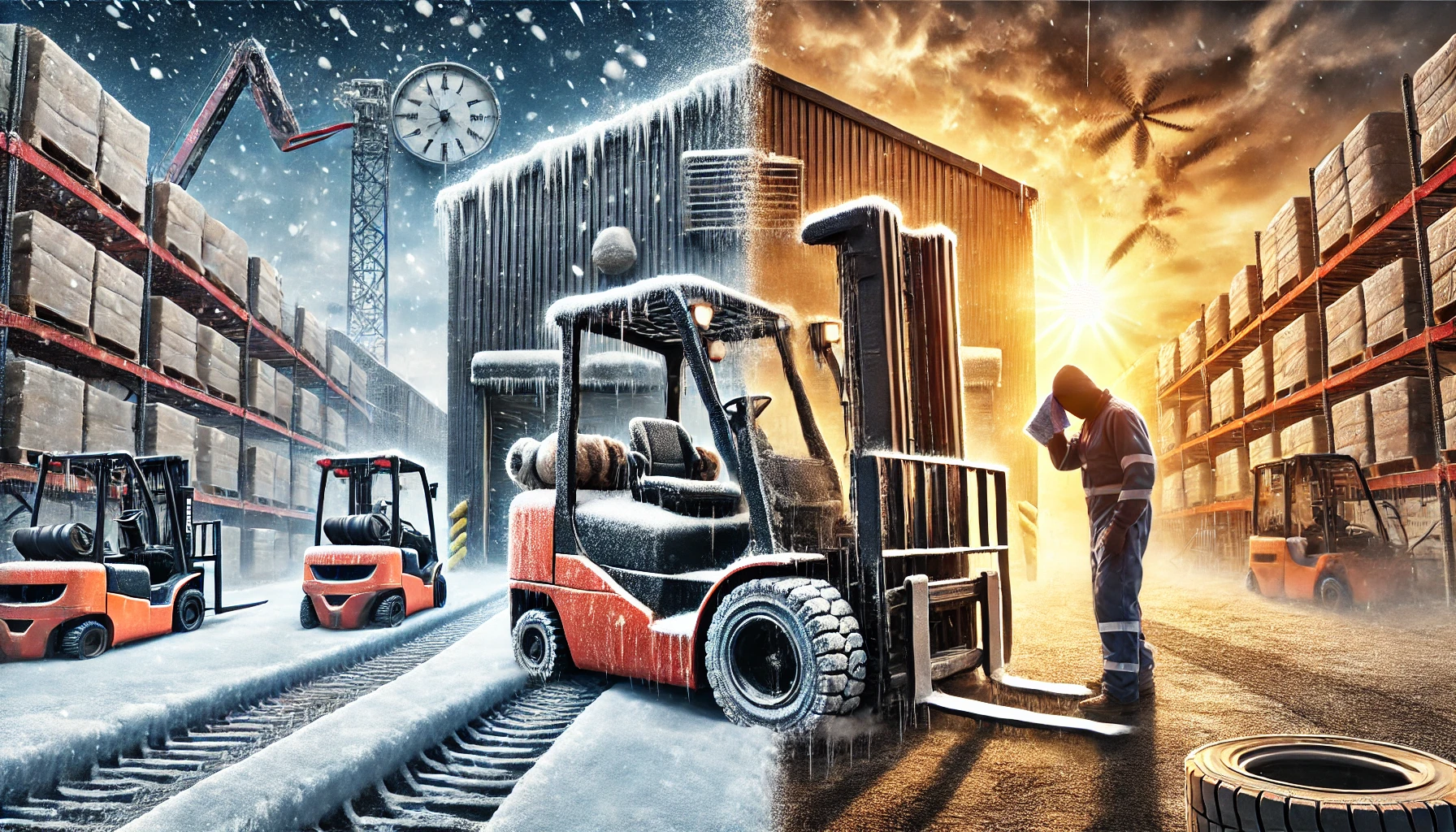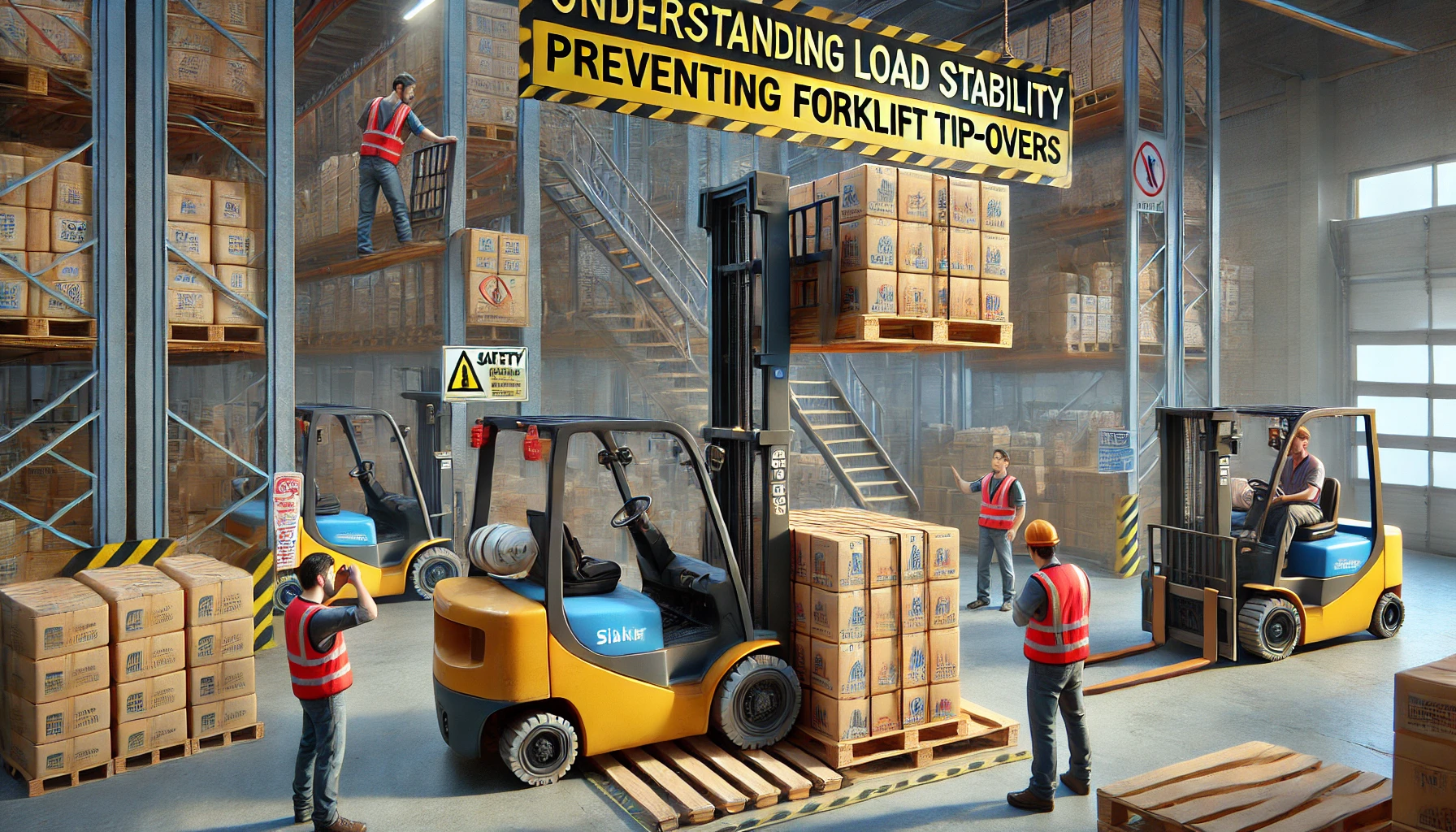Common Forklift Maintenance Mistakes and How to Avoid Them
Forklifts are the workhorses of many industries, from warehousing to construction, but like any machine, they need regular maintenance to keep them running smoothly. However, maintaining a forklift properly is not always as simple as it sounds, and many businesses make mistakes that can lead to costly repairs or even downtime. So, what are the most common forklift maintenance mistakes, and how can you avoid them to extend the lifespan of your equipment?
Let’s take a closer look.
Operators Skipping Daily Pre-Start Checks
One of the biggest mistakes operators make is skipping or delaying regular forklift inspections. It’s easy to fall into the trap of thinking that if a forklift seems to be running fine, there’s no need to check it. But in reality, regular inspections are crucial for catching small issues before they become big problems. Even something as minor as a worn-out tyre or low fluid level can lead to larger, more expensive repairs if left unchecked.
The solution? Make daily and weekly inspections a part of your routine. These checks don’t have to be lengthy – just a quick once-over to ensure everything is in working order. Look at the tyres, check the fluid levels (oil, hydraulic fluid, coolant), and ensure the forks are in good condition. By keeping up with regular inspections, you’ll catch problems early and avoid costly breakdowns down the track.
Ignoring Tyre Wear
Tyre wear is one of those things that can easily go unnoticed until it’s too late. Worn or damaged tyres not only affect the performance of your forklift but can also be a safety hazard. Forklifts rely on their tyres for stability, so driving on worn tyres can make the forklift unstable, especially when lifting heavy loads. Additionally, uneven tyre wear can put extra strain on the forklift’s suspension and drivetrain, leading to more serious mechanical issues.
To avoid this, make sure you’re checking tyre wear regularly. If the tread is wearing down or you notice cracks, it’s time to replace the tyres. This simple maintenance step can make a big difference in the overall performance and lifespan of your forklift.
Overlooking Fluid Levels
It’s easy to forget about fluid levels until something goes wrong, but ignoring them is a common maintenance mistake that can lead to engine damage or hydraulic failure. Forklifts rely on various fluids, including engine oil, hydraulic fluid, transmission fluid, and coolant, to function properly. If any of these fluids run low, it can cause the machine to overheat or even seize up, leading to expensive repairs.
To prevent this, get into the habit of checking your forklift’s fluid levels regularly, especially before long shifts or heavy usage. Top up fluids when necessary and follow the manufacturer’s recommendations for fluid changes. Keeping your forklift well-lubricated and cooled will help extend its lifespan and prevent unnecessary wear and tear.
Using the Wrong Parts or Fluids
Another common mistake is using the wrong replacement parts or fluids during maintenance. While it might be tempting to use cheaper, off-brand parts or generic fluids, these could be doing more harm than good. Forklifts are precision machines, and using parts or fluids that don’t meet the manufacturer’s specifications can lead to premature wear, decreased performance, and potentially voiding the warranty.
Always use the recommended parts and fluids for your specific forklift model. If you’re unsure, consult the manufacturer’s manual or ask your service provider for guidance. It might cost a little more upfront, but it will save you money in the long run by avoiding unnecessary damage and repairs.
Neglecting the Battery (For Electric Forklifts)
For businesses using electric forklifts, one of the most common maintenance oversights is neglecting the battery. Batteries are the lifeblood of electric forklifts, and proper care is essential for keeping them in good shape. Failing to charge the battery correctly, overcharging it, or letting it run too low can significantly shorten its lifespan. Similarly, not keeping the battery terminals clean can cause poor connections, leading to inefficient performance.
To avoid battery issues, follow a consistent charging schedule, and never let the battery run completely flat. Avoid opportunity charging (charging the battery during short breaks), as this can cause overheating. Make sure the battery is topped up with distilled water regularly and clean the terminals to prevent corrosion. With proper care, your forklift’s battery will last longer and perform better.
Not Keeping a Maintenance Log
One maintenance mistake that’s surprisingly common is not keeping a proper maintenance log. Without a record of what’s been done and when, it’s easy to lose track of when the next service is due or whether certain parts have been replaced. This can lead to missed maintenance tasks, increasing the risk of breakdowns and expensive repairs.
To keep things running smoothly, establish a maintenance log for each forklift in your fleet. This log should include details of inspections, services, repairs, and parts replacements. Not only does this help you stay on top of maintenance, but it also provides valuable information for your service provider if you need professional assistance. A well-maintained forklift will last longer, saving you time and money in the long run.
Overloading the Forklift
While overloading might not seem like a maintenance issue, it can have a significant impact on the lifespan of your forklift. Forklifts are designed to carry a certain maximum load, and exceeding that limit puts extra strain on the engine, hydraulics, and tyres. Overloading can also cause the forklift to become unstable, increasing the risk of accidents or tipping.
To avoid this, always ensure that your operators know the forklift’s load capacity and adhere to it strictly. Not only does this prevent unnecessary wear and tear on the forklift, but it also helps keep the workplace safe.
Skipping Professional Servicing
Finally, one of the most important things you can do to keep your forklift in good condition is to schedule regular professional servicing. While in-house maintenance is essential for day-to-day upkeep, forklifts also need more comprehensive servicing from a qualified technician. Skipping these professional services can lead to small issues being overlooked, which can then escalate into costly repairs or even equipment failure.
Professional servicing will include a thorough inspection of the forklift’s engine, hydraulics, electrics, and structural components, ensuring everything is in top working order. By staying on top of these services, you’ll help extend the life of your forklift and reduce the likelihood of expensive breakdowns.
Conclusion
Forklift maintenance is all about prevention. By avoiding common mistakes like skipping inspections, ignoring fluid levels, and using the wrong parts, you can keep your forklift running smoothly and extend its lifespan. A well-maintained forklift is not only more efficient but also safer to operate, reducing the risk of costly breakdowns and workplace accidents. With regular maintenance, attention to detail, and professional servicing, your forklift will serve your business reliably for years to come.







